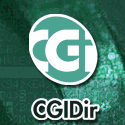|
|
|||||||||||||||||||||||||
|
|||||||||||||||||||||||||
|
Press Releases by DomainInformer.com
Comodo CEO and Chief Security Architect A featured guest on popular radio program ComputerAmericaFor nearly a decade Melih Abdulhayoglu, Chief Security Architect and CEO of Comodo has been exploring technologies that provide online security and safety for both consumers and businesses. March 22, 2007; 02:08 AM An edited transcript of the interview with Melih Abdulhayoglu's follows. (To hear the full interview, please click here. The broadcast aired on March 19, 2007 at 7:00 PM PST. The host was Carey Holzman (CH), is the author of a number of publications including The Healthy PC). CH: Our guest tonight is the Chief Security Architect and CEO of Comodo, Melih Abdulhayoglu. They are the makers of a free firewall. CH: You have an interesting product, can you tell us about it? MA: Thank you. Sure. We thought, "Why not build one of the best firewalls around and give it away for free?". And [then] we went ahead and did that. CH: I like that thought, but while there are lots of good firewalls, the problem is that people don't know how to use them. They don't know if an application wants to access the internet, whether they should allow it or not. So they end up clicking "No" and ultimately locking themselves out of their computer, or they "allow all" which defeats the whole point of having a firewall. Melih, could you tell me how Comodo is different from other firewalls, paid or free? MA: Sure. When the firewall is asking this question, it is checking to see what sort of executable application is running on your computer trying to make a connection to the Internet. The reason it is asking is because it does not know what that specific application is about. So we thought, "Why not create a huge safe list with a safe list of applications so that your firewall will ask you less often?" CH: Yes, that's mind blowing. Usually 90% of us use regular programs, yet firewalls force people to allow access each and every time one of these people tries to access that program. How many applications do you have in your safe lists that are known to be safe? MA: We have around 300,000 applications at the moment. CH: Wow, 300, 000! MA: And we are getting 3,000 executables a day to review. On daily basis, we keep updating our lists. CH: And what about some hacker putting something in your safe list? MA: That's where being the world's 2nd largest Certification Authority comes in. We are the guys who put the padlock on websites, so we have full Public Key Infrastructure. What that means is we have the ability to digitally sign a file so that any modification to it can be protected. If any modification is made, our firewall will know about it and it would reject it. CH: Is your firewall fast and light-weight or is it going to strain my system resources? MA: A firewall is all about controlling and stopping malware from making a connection from your home to the Internet. So, how do you test firewall security? This is known as the "leak test". What you do is see is if your firewall is leaking or not. According to independent tests, in terms of having best scoring leak test, we scored top of the list. And we do it in a way whereby it don't take too much system resources. CH: OK but I could be sending data right now and just not know it MA: That is one of the biggest problems facing us today. I mean, look at spam. 80% of it comes from Zombie computers that have not been protected. Somehow we are going to have to protect all of those machines or else the army of Zombie PCs will deter all of us from using the Internet. CH: That's true. CH: Is there any plan of selling or charging for this firewall or other desktop security products? MA: No, anything in desktop security that we are going to give to consumers is free. CH: God bless you. So how do you get paid? MA: Very good question, actually. Let me explain. First of all, why free? Someone has to provide it for free since the problems we are facing today from spam to spy ware are all because we don't have our machines secured. Many people around the world cannot afford $60 or $70 in countries such as China where the average income is about 100$ a month. So what happens is that all of those machines are left vulnerable, and China has the second largest Internet population in the world. So spam, spyware, and hacking often come from these machines. To solve this problem, we need to create the idea of a secure and trusted Internet. Once we have done that, we need to come up with a business model that allows us to make money from that. By giving free products to end-users, we are creating a secure ecosystem for our users and our online businesses. In return, businesses pay Comodo to protect their websites. So, the more users we have using our firewall, the more trusted the Comodo brand is, and the more business customers will choose Comodo to secure their online environment. Our customers are happy because they are using our services to protect their websites and consumers are happy because they can do business online confidently.
|
|
| Related Press Releases and Features | |
|
|
|
|
|
|
| Copyright © 1998 - 2018 DevStart, Inc. All Rights Reserved | ||






 PRESS BY MONTH
PRESS BY MONTH EDITOR'S DESK
EDITOR'S DESK SUBMIT PRESS
SUBMIT PRESS
